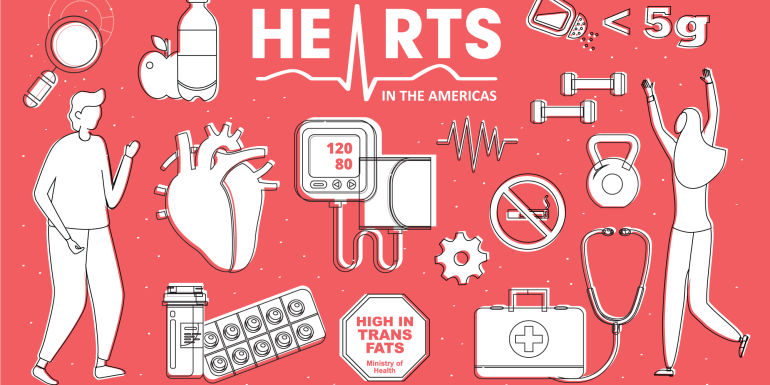
Cardiovascular disease (CVD) is the leading cause of death in the Americas, and high blood pressure accounts for over 50% of CVD. Unfortunately, in the Americas, over a quarter of adult women and four in ten adult men have hypertension, and the diagnosis, treatment, and control are suboptimal. Remarkably, only a few countries exhibit a population hypertension control rate of over 50%. To address this critical problem, the Pan American Health Organization initiated the HEARTS in the Americas Initiative, the regional adaptation of the World Health Organization Global Hearts Initiative, a comprehensive risk reduction program currently being implemented in nearly 2095 health facilities in 22 countries of the Region of the Americas.
HEARTS takes a pragmatic and comprehensive approach to the effective management of hypertension and the secondary prevention of cardiovascular disease. It emphasizes the adoption of a standardized treatment protocol for hypertension and a clinical pathway that integrates key components related to proper measurement of blood pressure, cardiovascular risk assessment, and risk-based care while strengthening the integration of diabetes and chronic kidney disease into primary health care.
This special issue of the Pan American Journal of Public Health will showcase relevant research efforts in the Region of the Americas on the implementation and early results of the comprehensive model to improve hypertension control and the prevention of cardiovascular disease. Furthermore, it opens the space for more discussion, encourages further studies in the field, and emphasizes the need for higher involvement of stakeholders in the implementation of HEARTS in the Americas Initiative.
The articles comprise original research and some translations into Spanish and Portuguese of articles recently published in other journals and will be posted on this website as they become available.
HEARTS in the Americas Initiative of PAHO/WHO and the Pan American Journal of Public Health gratefully acknowledge the continuous support of Resolve to Save Lives and the US Centers for Disease Control and Prevention.
Watch the webinar about the special issue on occasion of World Heart Day 2022.
